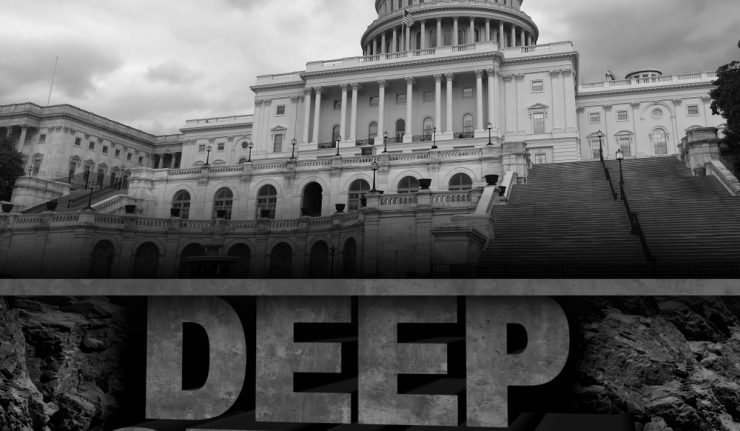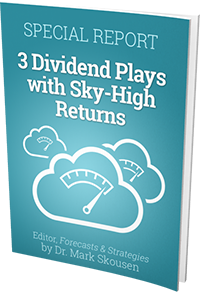In 2017, a law student named Lina Khan wrote a Yale Law Journal article called “Amazon’s Antitrust Paradox.”
She argued that antitrust laws fail to capture how tech giants like Amazon dominate the digital world while offering consumers lower prices and more selection.
Yep. Khan argued Amazon was bad because:
- It was large
- It used its size to pass along savings to consumers while also increasing choices
Despite knowing laws like the back of her hand, Khan, who now heads the FTC, and her Justice Department counterpart, Jonathan Kanter, have been working to revamp federal guidelines.
They want the U.S. government to consider a merger illegal based on factors that include its impact on worker pay and benefits.
Not only does this violate the separation of powers, but it’s entirely antithetical to consumer protection.
We’ve reviewed the lawsuits brought by Khan’s FTC, roughly 38 in total, far more than any other administration.
- 19 companies abandoned mergers
- 14 mergers were dropped during the FTC’s investigation
- The FTC filed administrative complaints or sought preliminary injunctions against 10 deals and ordered divestitures in 14 mergers
- In five instances, companies dropped plans after the FTC filed suit
- One company altered the deal, and the suit was subsequently dropped
- The one case the FTC brought to trial, which aimed to stop Microsoft’s acquisition of Activision Blizzard, was an abysmal failure.
Her boldest move came just a few months ago, where Khan, joined by 17 states, sued Amazon for violating her dubious legal theories.
While this might sound like a major problem, you might be surprised to realize that there are millions to be made by betting against the FTC.
The Hedge Fund That Said ‘I’ll Take That Bet’
Ironic.
That’s the only appropriate word to describe what happened.
At first, Wall Street was miffed by Khan’s approach. It wasn’t that they didn’t expect her to try, but she kept trying and failing.
It wasn’t long before one hedge fund got the brilliant idea to simply bet against Khan.
Florida-based Pentwater netted an estimated $100 million by betting the Amgen-Horizon deal would go through.
The same fund owns large positions in Activision and Seagen, the company trying to sell itself to Pfizer.
And the quote from Pentwater’s CEO is pure gold:
“Because of the FTC’s lawsuit, we have had the ability to take something that would have made tens of millions of dollars and instead make many, many times that amount.”
Yes, the very people that liberals like Khan, Senator Sanders and Senator Warren love to vilify are the ones being enriched by Khan’s failures.
And it’s not like Khan’s losing by a little. The FTC is getting clobbered by judges appointed by both Democrats and Republicans.
Why The FTC Keeps Failing
While it would be lovely if Khan was an outlier, the fact is that the FTC has grown too big for its britches for decades.
In fact, back in 2019, the Supreme Court voted 9-0 that the FTC could not seek monetary remedies with reckless abandon.
Even the liberal justices said the law granted the FTC no such powers.
You see, the FTC actually doesn’t have much authority.
It is primarily an investigative body with the ability to enforce laws against “deceptive acts or practices” and competitive practices that violate the Sherman Antitrust Act.
And the FTC can’t just penalize a company. It needs to go to notify the company, take them to court and prove its case.
Many companies simply give up because it costs too much and/or takes too much time to fight the FTC. Some will settle.
Under Khan, the FTC is attempting to rewrite the law by attempting to redefine the Sherman Antitrust Act.
This will cost taxpayers millions of dollars.
If Khan truly wanted this authority, she would need to get Congress to authorize it. That’s how this works.
Hurting No Matter What She Does
Let’s take a step back for a moment and look at Khan’s basic legal argument against corporate mergers and acquisitions.
Liberal economic theory asserts that competition must be preserved in order to provide a free market system that benefits consumers.
Setting aside that the fact that the data don’t suggest this is true, let’s look at how this actually plays out in the real world using the latest regional banking crisis.
The Federal Deposit and Insurance Corporation (FDIC) stopped bidding for Silicon Valley Bank in an effort to keep other banks from getting “too big.”
And what ended up happening?
JP Morgan bought most of the assets, subsidized by the federal government.
Mergers and acquisitions don’t always work out. But they are a fundamental market clearing mechanism.
Look at JetBlue’s proposed purchase of Spirit Airlines.
Right now, JetBlue is barely cash flow positive.
However, its network significantly overlaps with Spirit’s.
By acquiring Spirit, another company that is barely hanging on, we will get a company that won’t just survive, but also provide real shareholder value.
Yet, the FTC argues such a deal reduces competition.
You know what else reduces competition? Bankruptcy.
It’s ludicrous to suggest that a company like Spirit or JetBlue has the pricing power to sway airline prices when, combined, they would still be the world’s fourth largest air carrier.
And that also assumes there isn’t a product that can serve as a substitute (like cars).
Antitrust laws are more appropriately applied when a cable or utility company with the sole power to service a region buys out any competitor that tries to enter and immediately retires their assets.
That’s to say nothing about a government monopoly on those same services in many locations.
Taking on the FTC
Could a retail trader attempt these same arbitrage strategies?
Certainly.
However, they can take years to play out, and often come with significant draw-downs.
But we have a better idea.
Unlike the uncertain and drawn-out process of betting against the FTC’s decisions, Hugh Grossman’s day trading approach with the SPDR S&P 500 ETF Trust (NYSEARCA: SPY) provides a dynamic and proven method to generate regular gains.
His track record speaks volumes, boasting an impressive 96% win-rate.
This isn’t just about playing the long game against regulatory shifts; it’s about actively engaging in the market with strategies that yield consistent results.
While others speculate on the outcomes of complex legal battles, Hugh’s approach is grounded in real-time market analysis and a deep understanding of the SPY’s movements.
His system isn’t based on waiting for the next big legal upheaval; it’s about making smart, calculated decisions on a daily basis.
Whether you’re new to day trading or looking to refine your skills, Hugh’s guidance can be the key to unlocking a consistent stream of income.
Now is your chance to take advantage of a successful system with the proof to back it up.
Click HERE to discover how Hugh Grossman’s day trading strategy can transform your approach to the market and help you achieve the financial success you’ve been aiming for.




